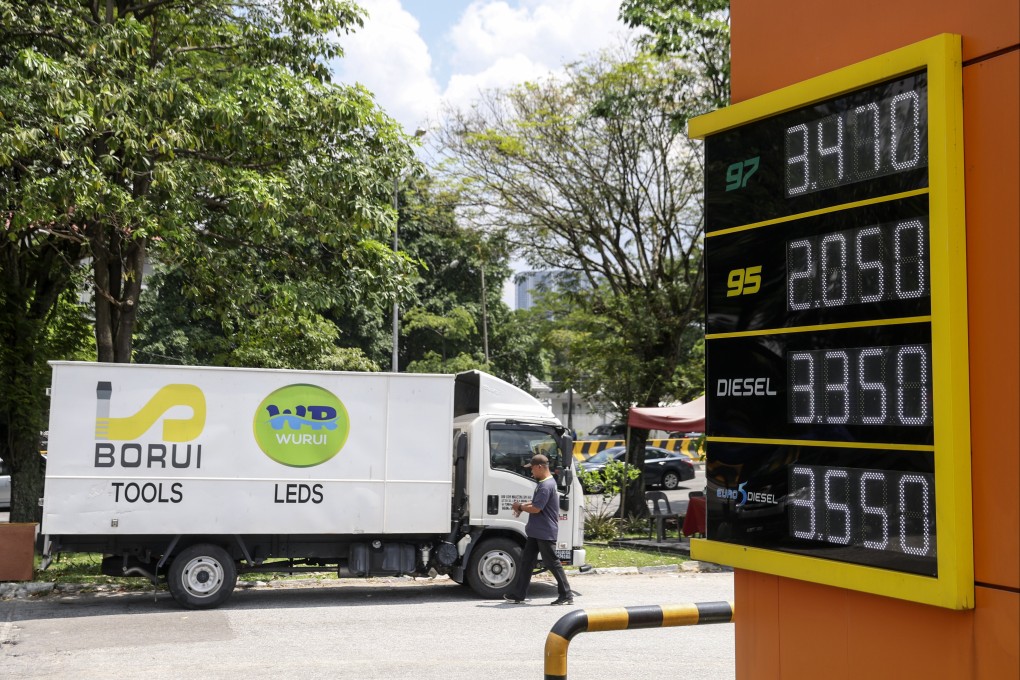Asian Angle | Malaysians need more help to cope with diesel subsidy cuts and rising costs
- The end of diesel subsidies has compounded Malaysians’ cost-of-living woes, even as it has relieved the pressure on state coffers

Diesel prices in Peninsular Malaysia, where the change took effect, increased by 56 per cent, from 2.15 ringgit to 3.35 ringgit. This is still the third cheapest in Southeast Asia, after Brunei and East Malaysia. The subsidy remains in place in the latter, due to greater travel distances and higher costs.
Past governments had discussed fuel subsidy rationalisation and faced political fallout when taking drastic action. In 2006, fuel price increases by then prime minister Abdullah Badawi, in tandem with steeply rising global prices and a mounting subsidy bill, triggered protests. The ensuing popular dissatisfaction contributed to the Barisan Nasional administration losing its two-thirds majority for the first time at the March 2008 general election.
Eligible commercial diesel vehicle owners must obtain a fleet card to access subsidised diesel. Commercial diesel, which is used for industry and should be delivered directly to the business and not pumped at stations, is unsubsidised. The government claims that it has plugged the leakage of subsidised diesel used by industry, as shown by the increase in commercial diesel sales by 4 million litres per day following the introduction of the new system. Concurrently, diesel sold at petrol stations fell by 8 million litres per day, or 30 per cent, compared with the week before.
